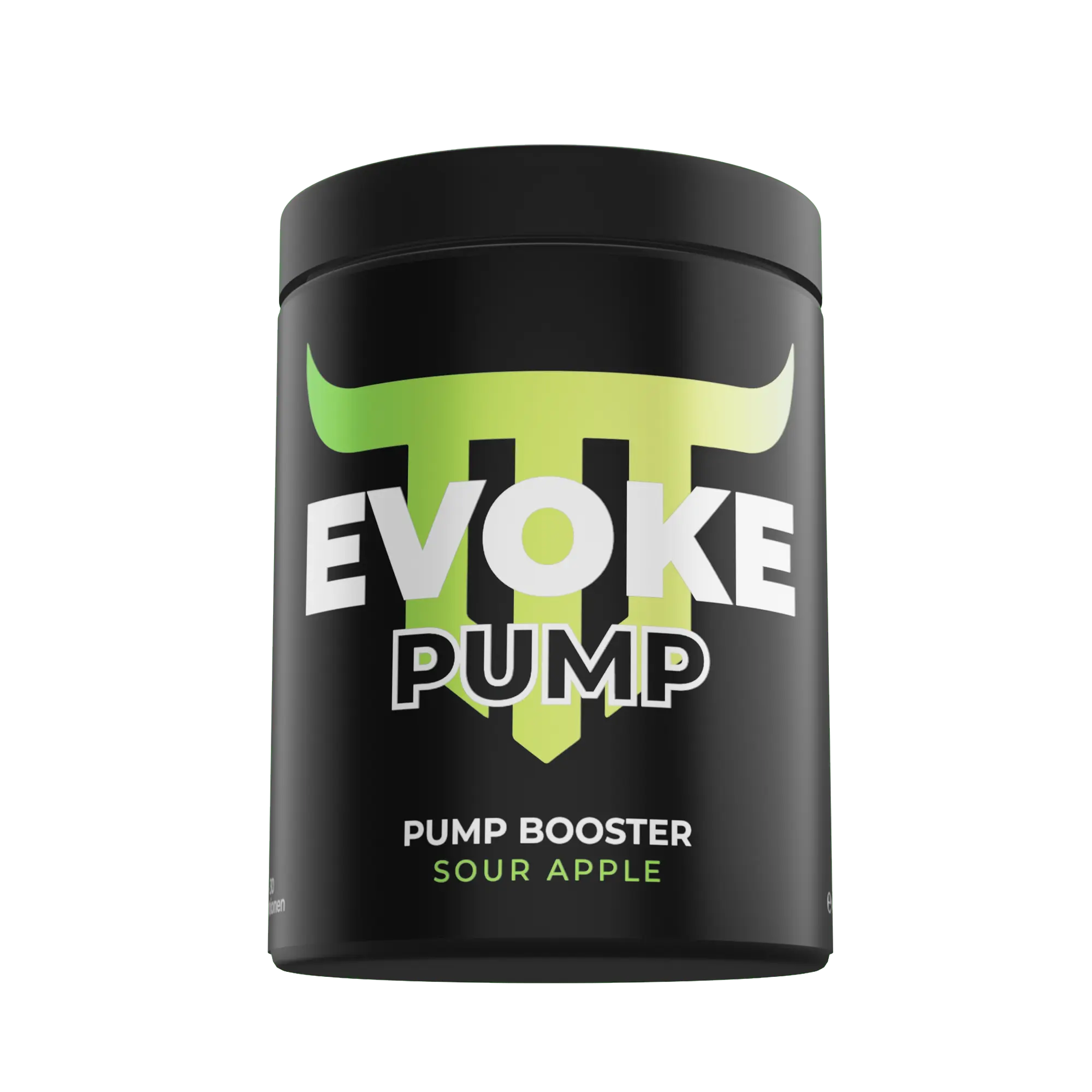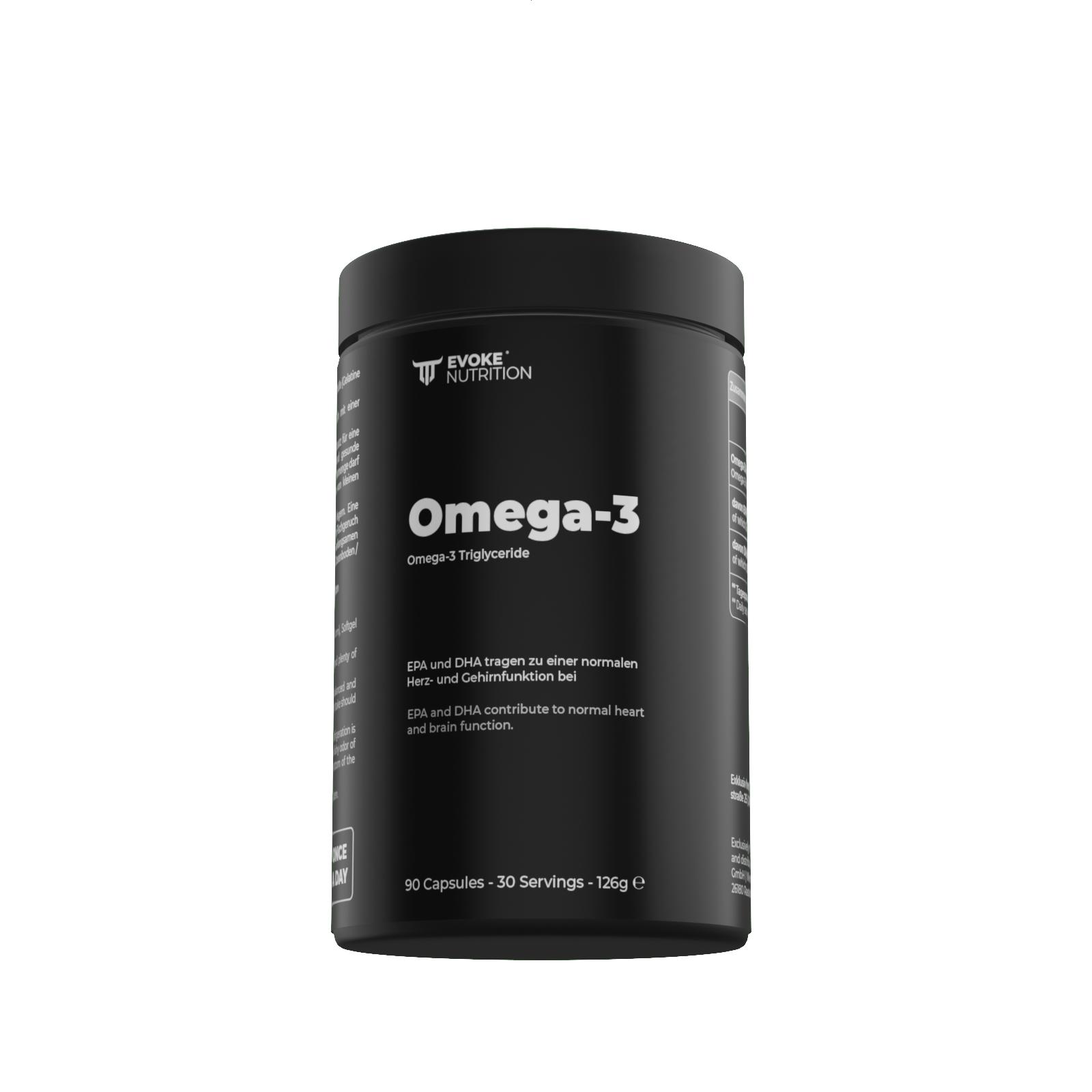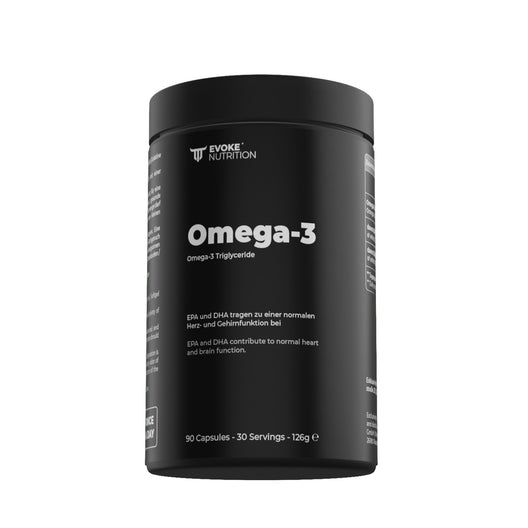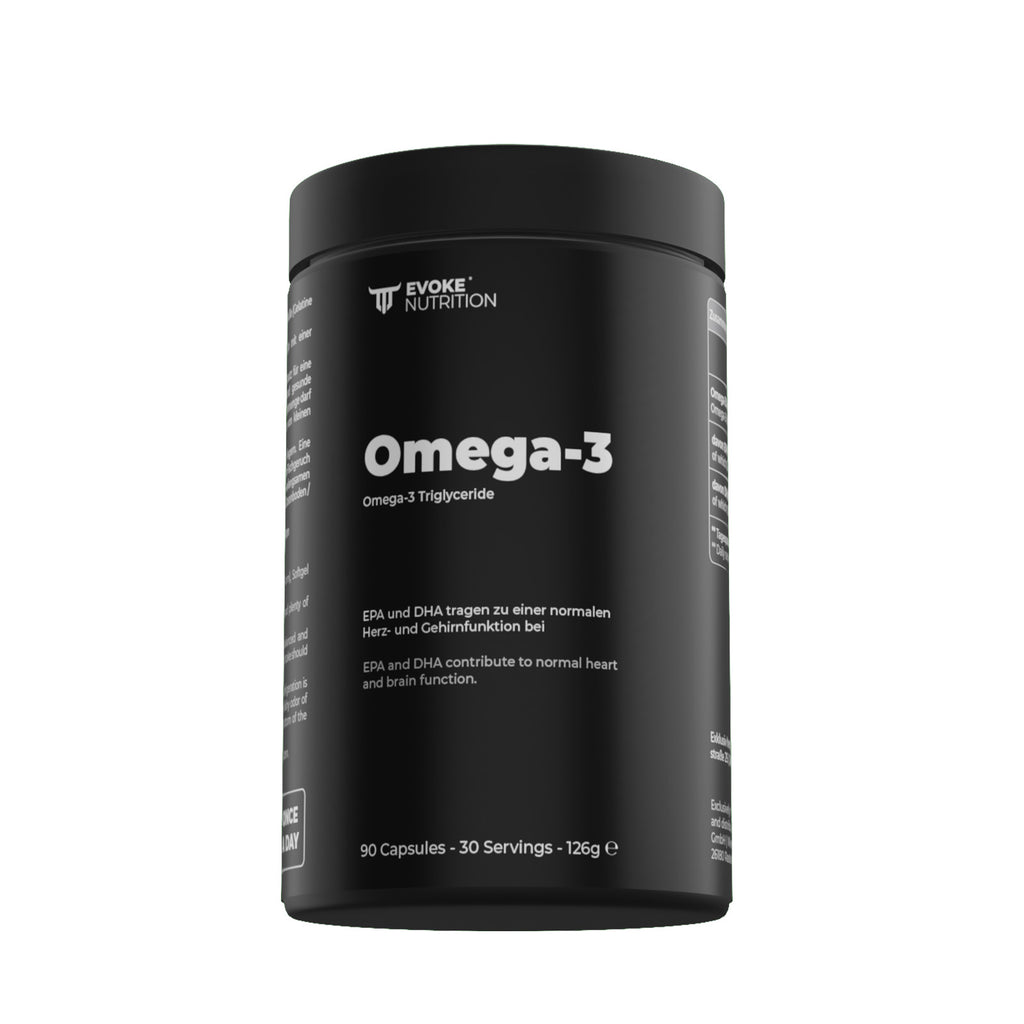Omega 3 für Muskelaufbau
Was sind Omega-3 Fettsäuren?
Welche Wirkung hat Omega-3 auf den Körper?
Was sind Triglyceride?
Welche Wirkung hat Omega-3 auf den Muskelaufbau?
Wie viel Omega-3 am Tag für Muskelaufbau?
Wie viel Omega-3 am Tag für Muskelaufbau?
Kann Omega-3 den Muskelabbau verringern?
Kann Omega-3 den Muskelabbau verringern?
Wie kann ich meinen Omega-3-Bedarf decken?
Fazit
Quellen
1
DHA trägt zur Erhaltung einer normalen Gehirnfunktion und zur normalen Sehkraft bei.
2
EPA und DHA tragen zu einer normalen Herzfunktion bei.
3
Skulas-Ray, Ann C et al. “Omega-3 Fatty Acids for the Management of Hypertriglyceridemia: A Science Advisory From the American Heart Association.” Circulation vol. 140,12 (2019): e673-e691. , https://pubmed.ncbi.nlm.nih.gov/31422671/.
4
Flock, Michael R et al. “Determinants of erythrocyte omega-3 fatty acid content in response to fish oil supplementation: a dose-response randomized controlled trial.” Journal of the American Heart Association vol. 2,6 e000513. 19 Nov. 2013, https://pubmed.ncbi.nlm.nih.gov/24252845/.
5
Superko, H Robert et al. “Omega-3 fatty acid blood levels: clinical significance and controversy.” Circulation vol. 128,19 (2013): 2154-61. https://pubmed.ncbi.nlm.nih.gov/24190935/.
6
Mohebi-Nejad, Azin, and Behnood Bikdeli. “Omega-3 supplements and cardiovascular diseases.” Tanaffos vol. 13,1 (2014): 6-14, https://pmc.ncbi.nlm.nih.gov/articles/PMC4153275/.
7
Swanson, Danielle et al. “Omega-3 fatty acids EPA and DHA: health benefits throughout life.” Advances in nutrition (Bethesda, Md.) vol. 3,1 (2012): 1-7, https://pmc.ncbi.nlm.nih.gov/articles/PMC3262608/.
8
Ella J. Baker, et al. ”Metabolism and functional effects of plant-derived omega-3 fatty acids in humans”, Progress in Lipid Research, Volume 64, 2016, https://www.sciencedirect.com/science/article/abs/pii/S0163782716300303?via%3Dihub.
9
Siscovick, David S et al. “Omega-3 Polyunsaturated Fatty Acid (Fish Oil) Supplementation and the Prevention of Clinical Cardiovascular Disease: A Science Advisory From the American Heart Association.” Circulation vol. 135,15 (2017), https://pmc.ncbi.nlm.nih.gov/articles/PMC6903779/.
10
Huang, Ya-Hui et al. “Effects of Omega-3 Fatty Acids on Muscle Mass, Muscle Strength and Muscle Performance among the Elderly: A Meta-Analysis.” Nutrients vol. 12,12 3739. 4 Dec. 2020, https://pubmed.ncbi.nlm.nih.gov/33291698/.
11
Cameron-Smith, David et al. “Fishing for answers: is oxidation of fish oil supplements a problem?.” Journal of nutritional science vol. 4 e36. 23 Nov. 2015, https://pmc.ncbi.nlm.nih.gov/articles/PMC4681158/.
12
Albert, Benjamin B et al. “Oxidation of marine omega-3 supplements and human health.” BioMed research international vol. 2013 (2013): https://pmc.ncbi.nlm.nih.gov/articles/PMC3657456/.
13
Jackowski, Stefan A et al. “Oxidation levels of North American over-the-counter n-3 (omega-3) supplements and the influence of supplement formulation and delivery form on evaluating oxidative safety.” Journal of nutritional science vol. 4 e30. 4 Nov. 2015, https://pmc.ncbi.nlm.nih.gov/articles/PMC4678768/.
14
McNamara, Robert K et al. “Docosahexaenoic acid supplementation increases prefrontal cortex activation during sustained attention in healthy boys: a placebo-controlled, dose-ranging, functional magnetic resonance imaging study.” The American journal of clinical nutrition vol. 91,4 (2010): https://pubmed.ncbi.nlm.nih.gov/20130094/.
15
Middleton, Philippa et al. “Omega-3 fatty acid addition during pregnancy.” The Cochrane database of systematic reviews vol. 11,11 CD003402. 15 Nov. 2018, https://pmc.ncbi.nlm.nih.gov/articles/PMC6516961/.
16
Coletta, Jaclyn M et al. “Omega-3 Fatty acids and pregnancy.” Reviews in obstetrics & gynecology vol. 3,4 (2010): 163-71. https://pmc.ncbi.nlm.nih.gov/articles/PMC3046737/.
17
Yan, J., Liu, M., Yang, D. et al. Efficacy and Safety of Omega-3 Fatty Acids in the Prevention of Cardiovascular Disease: A Systematic Review and Meta-analysis. Cardiovasc Drugs Ther 38, 799–817 (2024). https://link.springer.com/article/10.1007/s10557-022-07379-z.
18
Scientific Opinion on the Tolerable Upper Intake Level of eicosapentaenoic acid (EPA), docosahexaenoic acid (DHA) and docosapentaenoic acid (DPA) https://www.efsa.europa.eu/en/efsajournal/pub/2815.
19
Hu, Yang et al. “Marine Omega-3 Supplementation and Cardiovascular Disease: An Updated Meta-Analysis of 13 Randomized Controlled Trials Involving 127 477 Participants.” Journal of the American Heart Association vol. 8,19 (2019): https://pmc.ncbi.nlm.nih.gov/articles/PMC6806028/.
20
von Schacky, Clemens. “Importance of EPA and DHA Blood Levels in Brain Structure and Function.” Nutrients vol. 13,4 1074. 25 Mar. 2021, doi:10.3390/nu13041074 https://pmc.ncbi.nlm.nih.gov/articles/PMC8066148/.
21
Ochi, Eisuke et al. “Effect of eicosapentaenoic acids-rich fish oil supplementation on motor nerve function after eccentric contractions.” Journal of the International Society of Sports Nutrition vol. 14 23. 12 Jul. 2017, https://pubmed.ncbi.nlm.nih.gov/28717347/.
22
Philpott, Jordan D et al. “Influence of Fish Oil-Derived n-3 Fatty Acid Supplementation on Changes in Body Composition and Muscle Strength During Short-Term Weight Loss in Resistance-Trained Men.” Frontiers in nutrition vol. 6 102. 16 Jul. 2019, https://pmc.ncbi.nlm.nih.gov/articles/PMC6652803/.
23
Philpott, Jordan D et al. “Applications of omega-3 polyunsaturated fatty acid supplementation for sport performance.” Research in sports medicine (Print) vol. 27,2 (2019): 219-237. https://pubmed.ncbi.nlm.nih.gov/30484702/.
23
Rossato, Luana T et al. “Is there sufficient evidence to supplement omega-3 fatty acids to increase muscle mass and strength in young and older adults?.” Clinical nutrition (Edinburgh, Scotland) vol. 39,1 (2020): 23-32. https://pubmed.ncbi.nlm.nih.gov/30661906/.
24
Lalia, Antigoni Z et al. “Influence of omega-3 fatty acids on skeletal muscle protein metabolism and mitochondrial bioenergetics in older adults.” Aging vol. 9,4 (2017): 1096-1129. https://pubmed.ncbi.nlm.nih.gov/28379838/.








